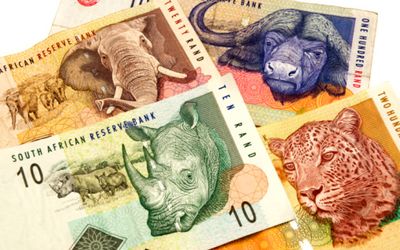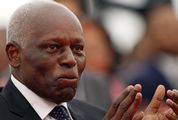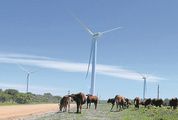Emerging-market stocks and currencies climb to three month high
by Natasha Doff,
2016-03-12 14:46:07.0
LONDON — Emerging-market stocks and currencies rose for a second week and bonds rallied as oil’s rebound above $40 a barrel and European stimulus boosted demand for riskier assets.
A gauge of developing-nation currencies climbed to a three-month high as China strengthened the yuan’s fixing, spurring a surge in the onshore currency. Russia’s ruble, and South Africa’s rand each jumped at least 1% as oil’s advance boosted sentiment toward commodity exporters. Brazil’s real strengthened for a fourth day and the Ibovespa advanced amid mounting speculation that there will be a change in government. Hungarian equities rallied to a six-year high, leading an advance in eastern European stocks toward their highest close since November.
While monetary easing from the European Central Bank (ECB) on Thursday encouraged inflows to higher-yielding assets, investors are watching the Federal Reserve as speculation gathers momentum that it will raise US interest rates this year.
Futures traders see about a 77% chance of an interest rate increase by the Fed’s December policy meeting. Chinese factory production and foreign direct investment data are also forecast to provide further evidence of a slowdown in the world’s second largest economy.
Currencies Strengthen
"Investors are realizing that the ECB is still able to ease further and that is helping sentiment toward emerging markets," said Guillaume Tresca, a strategist at Credit Agricole SA in Paris, who recommends selling the rand and buying the Turkish lira. "The Fed March meeting next Wednesday will be a reminder that it is on course to normalize monetary policy later this year, so we could see some profit taking."
A gauge tracking 20 exchange rates climbed 0.8% to close at 71.09, pushing its gain for the week to 1.3%. Volatility in developing-market currencies, a measure of risk used in pricing options, fell 0.3% in the past five trading days following a 13% drop in the past three weeks, according to a JPMorgan Chase index.
The MSCI Emerging Markets Index rose 1.3% to the highest level this year. The advance wiped out the stock benchmark’s decline for 2016. Brent crude jumped almost 1% to $40.44 a barrel. The Bloomberg Commodity Index of 26 raw materials added 0.7%, pushing its five-day gain to 2%.
Russia’s ruble appreciated 2.3%, dipping below 70 per dollar for the first time this year. A four-week rally in the currency is giving policy makers room to resume a cycle of interest-rate cuts, with wagers for a reduction in borrowing costs widening to the highest level this year on Friday.
Rand and Real
SA’s rand strengthened 1.3%, extending gains for a second week. The Brazilian real gained 1.2% against the dollar, pushing its gain to 4.6% this week, the most among 24 emerging currencies tracked by Bloomberg.
China’s onshore yuan rose 0.2% on Friday ahead of key data on Saturday and an annual press conference by People’s Bank of China Governor Zhou Xiaochuan and his top deputies.
Hungarian equities advanced 1.4% to the highest level since January 2008. Turkey’s Borsa Istanbul 100 Index climbed for a 10th straight day, its longest winning streak since 2013. It advanced 0.5% to the highest level in more than three months, taking the weekly gain to 2.8%.
Stock Valuations
The Ibovespa advanced 0.1% in Sao Paulo. Lender Banco do Brasil SA led gains in the benchmark, rallying 6.3%.
The Shanghai Composite Index rose 0.2%, stemming a 2.2% drop for the week as state intervention failed to regain investor confidence. Shanghai Pudong Development Bank slumped after a stock-sale plan. The Hang Seng China Enterprises Index of mainland stocks listed in Hong Kong advanced 1.7%, erasing its decline for the week.
All 10 industry groups in the MSCI Emerging Markets Index gained this week, led by technology and industrial companies. Developing-nation stocks have climbed 0.9% this year and are valued at 11.6 times 12-month estimated earnings. The MSCI World Index has declined 2.2% in 2016 and is valued 15.8 times earnings.
The premium investors demand to own emerging-market debt over US Treasuries narrowed seven basis points to 411.
JPMorgan Chasecut "several" emerging-market credit traders, including global head Robert Milam, as volatility in the asset class bled into this year, according to people with knowledge of the moves.
South Korea’s 10-year government notes fell this week after the central bank refrained from cutting the benchmark interest rate from a record low. The yield rose five basis points to 1.92%, Korea Exchange prices show.
Russian government bonds fell, trimming the second-best rally in emerging markets this month. The yield on five-year sovereign OFZ bonds advanced five basis points to 9.4%. They’re still down 154 basis points since touching a 2016 high in January.
Bloomberg

Rand notes. Picture: THINKSTOCK
LONDON — Emerging-market stocks and currencies rose for a second week and bonds rallied as oil’s rebound above $40 a barrel and European stimulus boosted demand for riskier assets.
A gauge of developing-nation currencies climbed to a three-month high as China strengthened the yuan’s fixing, spurring a surge in the onshore currency. Russia’s ruble, and South Africa’s rand each jumped at least 1% as oil’s advance boosted sentiment toward commodity exporters. Brazil’s real strengthened for a fourth day and the Ibovespa advanced amid mounting speculation that there will be a change in government. Hungarian equities rallied to a six-year high, leading an advance in eastern European stocks toward their highest close since November.
While monetary easing from the European Central Bank (ECB) on Thursday encouraged inflows to higher-yielding assets, investors are watching the Federal Reserve as speculation gathers momentum that it will raise US interest rates this year.
Futures traders see about a 77% chance of an interest rate increase by the Fed’s December policy meeting. Chinese factory production and foreign direct investment data are also forecast to provide further evidence of a slowdown in the world’s second largest economy.
Currencies Strengthen
"Investors are realizing that the ECB is still able to ease further and that is helping sentiment toward emerging markets," said Guillaume Tresca, a strategist at Credit Agricole SA in Paris, who recommends selling the rand and buying the Turkish lira. "The Fed March meeting next Wednesday will be a reminder that it is on course to normalize monetary policy later this year, so we could see some profit taking."
A gauge tracking 20 exchange rates climbed 0.8% to close at 71.09, pushing its gain for the week to 1.3%. Volatility in developing-market currencies, a measure of risk used in pricing options, fell 0.3% in the past five trading days following a 13% drop in the past three weeks, according to a JPMorgan Chase index.
The MSCI Emerging Markets Index rose 1.3% to the highest level this year. The advance wiped out the stock benchmark’s decline for 2016. Brent crude jumped almost 1% to $40.44 a barrel. The Bloomberg Commodity Index of 26 raw materials added 0.7%, pushing its five-day gain to 2%.
Russia’s ruble appreciated 2.3%, dipping below 70 per dollar for the first time this year. A four-week rally in the currency is giving policy makers room to resume a cycle of interest-rate cuts, with wagers for a reduction in borrowing costs widening to the highest level this year on Friday.
Rand and Real
SA’s rand strengthened 1.3%, extending gains for a second week. The Brazilian real gained 1.2% against the dollar, pushing its gain to 4.6% this week, the most among 24 emerging currencies tracked by Bloomberg.
China’s onshore yuan rose 0.2% on Friday ahead of key data on Saturday and an annual press conference by People’s Bank of China Governor Zhou Xiaochuan and his top deputies.
Hungarian equities advanced 1.4% to the highest level since January 2008. Turkey’s Borsa Istanbul 100 Index climbed for a 10th straight day, its longest winning streak since 2013. It advanced 0.5% to the highest level in more than three months, taking the weekly gain to 2.8%.
Stock Valuations
The Ibovespa advanced 0.1% in Sao Paulo. Lender Banco do Brasil SA led gains in the benchmark, rallying 6.3%.
The Shanghai Composite Index rose 0.2%, stemming a 2.2% drop for the week as state intervention failed to regain investor confidence. Shanghai Pudong Development Bank slumped after a stock-sale plan. The Hang Seng China Enterprises Index of mainland stocks listed in Hong Kong advanced 1.7%, erasing its decline for the week.
All 10 industry groups in the MSCI Emerging Markets Index gained this week, led by technology and industrial companies. Developing-nation stocks have climbed 0.9% this year and are valued at 11.6 times 12-month estimated earnings. The MSCI World Index has declined 2.2% in 2016 and is valued 15.8 times earnings.
The premium investors demand to own emerging-market debt over US Treasuries narrowed seven basis points to 411.
JPMorgan Chasecut "several" emerging-market credit traders, including global head Robert Milam, as volatility in the asset class bled into this year, according to people with knowledge of the moves.
South Korea’s 10-year government notes fell this week after the central bank refrained from cutting the benchmark interest rate from a record low. The yield rose five basis points to 1.92%, Korea Exchange prices show.
Russian government bonds fell, trimming the second-best rally in emerging markets this month. The yield on five-year sovereign OFZ bonds advanced five basis points to 9.4%. They’re still down 154 basis points since touching a 2016 high in January.
Bloomberg
























Change: 0.40%
Change: 0.47%
Change: -0.49%
Change: 0.53%
Change: 1.03%
Data supplied by Profile Data
Change: 1.71%
Change: 1.28%
Change: 0.40%
Change: 0.00%
Change: 1.64%
Data supplied by Profile Data
Change: -1.27%
Change: 0.00%
Change: 0.05%
Change: -0.08%
Change: 0.35%
Data supplied by Profile Data
Change: -0.02%
Change: 0.21%
Change: -0.06%
Change: 0.53%
Change: 0.70%
Data supplied by Profile Data